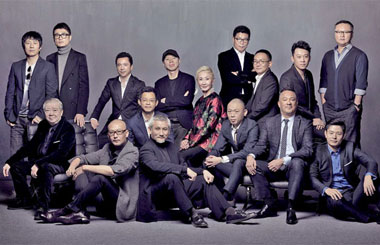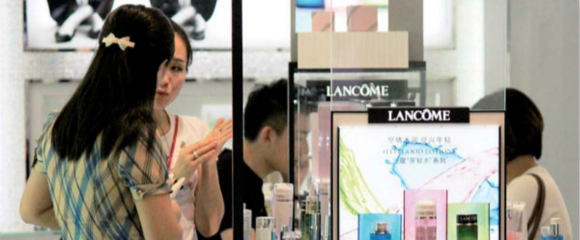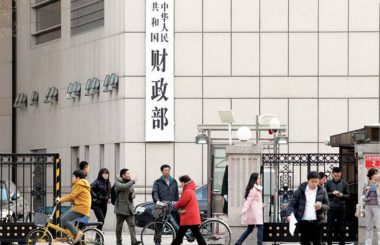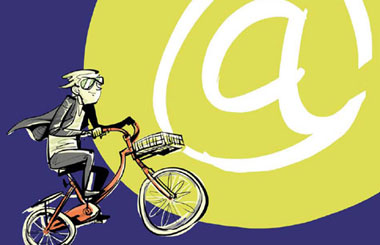S.Korea's ruling party loses majority in parliamentary election
Updated: 2016-04-14 16:30
(Xinhua)
|
|||||||||
SEOUL - South Korea's ruling party failed to regain a majority in the parliamentary election, heralding hardships that President Park Geun-hye's economic reform drive may face during the latter half of her five-year single term.
The ruling Saenuri Party gained a total of 122 parliamentary seats in the 300-seat National Assembly after the country's 20th general election, according to the National Election Commission.
It was lower than the achievement of the main opposition Minjoo Party that won 123 parliamentary seats, while the newly launched People's Party took 38 seats. The minor Justice Party won six seats, and 11 independent candidates were elected to the new assembly.
Among 253 electoral districts, Saenuri won 105 seats, unexpectedly falling short of 110 seats that the main opposition party took. The People's Party gained 25 seats, while the Justice Party took two seats. The remaining 11 seats were awarded to independent candidates.
In the proportional representation to vote for a political party voting, the ruling party gained 17 seats, with the Minjoo Party and the People's Party winning 13 seats respectively. The Justice Party gained four seats.
Excluding the independent elects, opposition parties garnered a total of 167 parliamentary seats in the election, forming the first majority of opposition parties in 16 years.
The governing party missed expectations for a two-thirds supermajority, even failing to achieve the worst-case scenario of winning at least 145 seats.
Park's conservative party failed to win even one-third of seats in the metropolitan area that has a total of 122 constituencies.
Shockingly enough, Saenuri surrendered to Minjoo and independent candidates in 17 of a combined 65 electoral districts in southeastern Gyeongsang province, a traditional home turf to the ruling party and President Park.
The main opposition party unexpectedly won a landslide victory in Seoul and its suburban areas, becoming a party having the highest number of parliamentary seats in the metropolitan region.
People's Party successfully debuted in the election, winning 38 seats in the assembly. It was much higher than 20 seats required to become a bargaining body in the parliament.
The People's Party was created earlier this year by those who defected from Minjoo, including former Minjoo Party co-chairman Ahn Cheol-soo widely seen as a potential candidate for next year's presidential election.
It was an unexpected result as many of political pundits had predicted a landslide victory of Park's conservative party over the main opposition party that has been embroiled in factional infighting and has resulted in its division into two.
Saenuri's failure to regain its parliamentary majority is expected to jeopardize the state management of President Park whose five-year single term will expire in early 2018. The next presidential election will be held in late 2017.
Pending at the National Assembly are many economic reform bills, which Park has been pushing for from her early presidency but has failed to pass through the parliament amid strong opposition from the archrival Minjoo Party.
The reform bills include labor reform, which is condemned by workers as it is worried that a labor reform bill may increase flexibility and weaken job security in the labor market by making it easier for companies to dismiss employees, a claim flatly denied by the Park government.
The unexpected results were partly attributable to a higher voter turnout that tends to benefit opposition parties. The National Election Commission said that 58 percent of 42 million voters turned out to vote in the 20th parliamentary election, higher than 54.2 percent tallied in the previous election.
South Korea's electorate is divided among generations, with those in their 20s to 40s having a more liberalist inclination of politics and voting for opposition parties. A smaller number of younger-generation voters usually show up in polling stations than conservative older voters who favor Saenuri.
South Koreans may have been disappointed at President Park's economic policy as the export-driven economy has been stagnant with a drop in exports, a high unemployment rate especially among those under 30 and massive household debts continuing to break record highs.
Conservative voters might turn their backs to the ruling party because Saenuri also suffered from factional infighting in the course of parliamentary candidate nomination that led to defections of some of party members.
Related Stories
South Korea kicks off general election for 300 lawmakers 2016-04-13 14:41
China,South Korea to meet in 2018 Cup Asian qualifiers 2016-04-13 08:28
China, South Korea express interest to host 2023 football Asian Cup 2016-04-12 21:26
South Korea hosts '2016 East Asia City of Culture' 2016-04-08 17:36
South Korea returns remains of Chinese soldiers lost in Korean War 2016-03-31 15:08
Guizhou and South Korea work on emerging industries 2016-03-25 17:23
Today's Top News
World Bank joins AIIB on financing for joint projects
GM seeds to get oversight
Russia-China ties benefit both countries, peoples
China, UK showcase best books in London
Hello, China! Stephen Hawking debuts Weibo account
Manila set to restart revamp of airport in S China Sea
Forget cabs, now you can book plane through apps
Britain and China must join to solve steel crisis, ambassador says
Hot Topics
Lunar probe , China growth forecasts, Emission rules get tougher, China seen through 'colored lens', International board,
Editor's Picks

|

|

|

|

|

|







